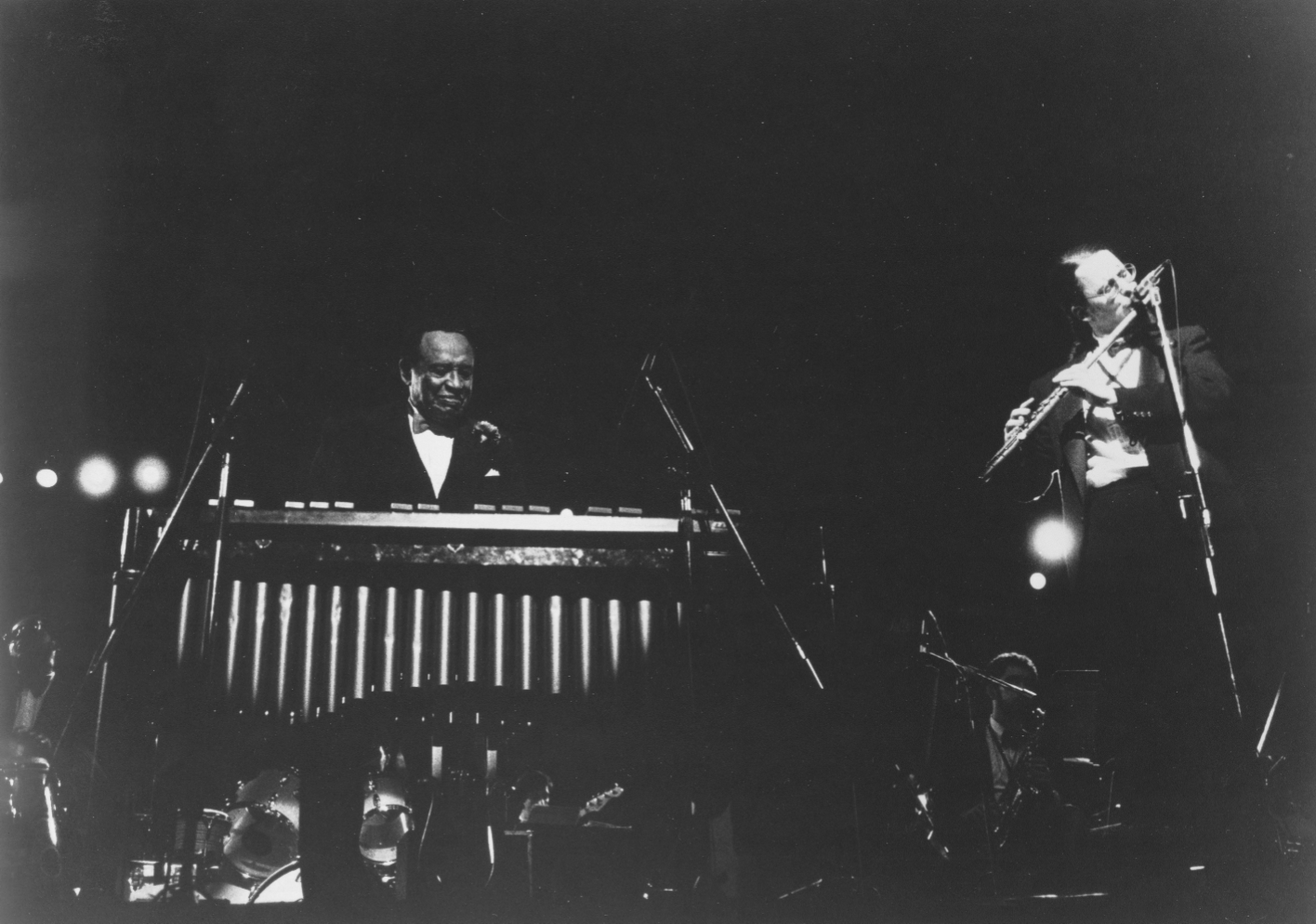Shortly before that disc was recorded, Chapin had joined the big band of Lionel Hampton, where he would serve as lead alto and musical director until 1986.
"Gates [Hampton's nickname] likes to have ultimate control," Chapin told Vernon Frazer in a 1987 Coda interview. "I just take up the slack." Yet Chapin was the straw boss, wrote original compositions such as "One Man Blues" for the band's book, and arranged other material (including a piece by the Brazilian composer Pixinguinha for a South American tour). His Hampton period, which continued intermittently through 1988, took Chapin around the world several times and brought him into contact with veterans like Arnett Cobb and Frankie Dunlop, while also reinforcing his focus. "When I think of Lionel Hampton now," Chapin noted a decade later, "I see that the joy he communicates is what he's all about."
Typically, Chapin was able to transcend the routine of orchestral section work and make the most of his years with Hampton. "When you're in a situation like a big band," he explained, "the trick is to know your own mind, to know that you're on your own path."
“Jazz is essence expressing itself through personality, and it was during my years with Gates that I started feeling that Thomas Chapin thing happening.”
The emergence of Chapin's own voice as player and composer can be can be heard on a few recordings from the period, including the 1984 quartet session Radius, released on the MU label in 1990 and indicative of Chapin's later efforts in the horn/piano/bass/drum quartet format. Even before leaving Hampton, he had been involved in the Connecticut-based improvisational collective Zasis; and after leaving Gates he worked with two sextets, the improvisational Motation and chamber-oriented Alborada Latina, as well as Pavone's various bands.
Chapin appeared in New York with the alternative rock group Machine Gun, assuming the nom de gig Rage, and worked throughout 1989 with Chico Hamilton's quartet Euphoria. Under his own name he appeared in such Connecticut clubs as Lloyd's in Hartford and the Hillside in Waterbury, and landed the odd road jobs with pickup groups, one of which took him to Caracas, Venezuela in 1987. Chapin also recorded a second LP for Alacra in 1988 called Spirits Rebellious, focusing on international folk musics and various flutes in a quintet completed by guitar, cello, tablas and percussion.
by Bob Blumenthal, jazz writer-critic, The Boston Globe
